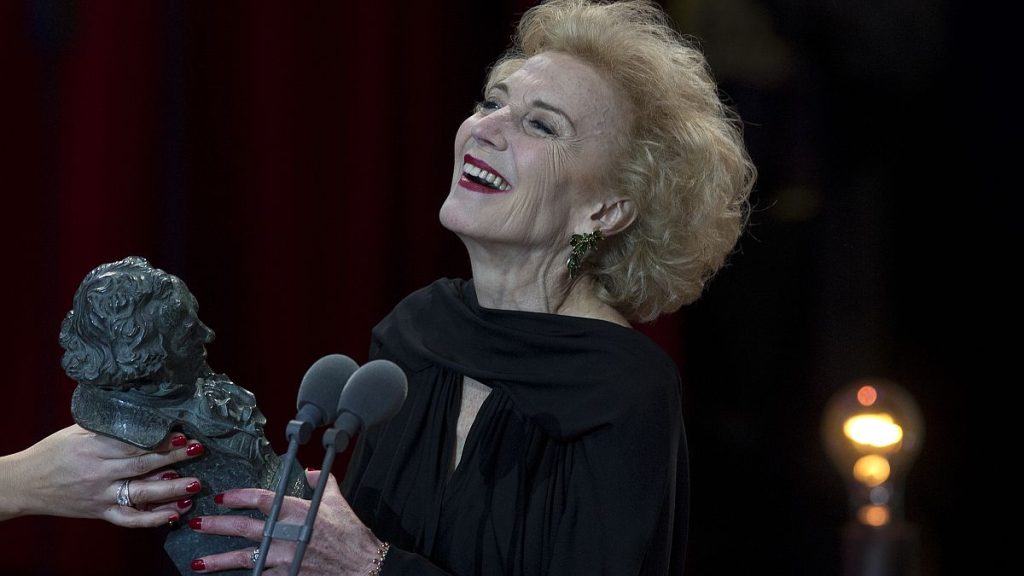A Luminary Lost: The Life and Legacy of Marisa Paredes
Marisa Paredes, a towering figure in Spanish cinema, passed away in Madrid at the age of 78, leaving a void that will be difficult to fill. Her death, attributed to heart failure, marks the end of an era for Spanish film, as she was an actress who seamlessly embodied strength, vulnerability, and profound humanity in her portrayals. From her early beginnings on stage to her celebrated collaborations with Pedro Almodóvar and other renowned directors, Paredes’ career spanned decades and encompassed a rich tapestry of roles that showcased her versatility and captivating presence. Her contributions to the arts extended beyond acting, as she also served as president of the Spanish Academy of Motion Pictures Arts and Sciences, advocating for the industry and using her platform to express her political convictions.
Born in post-civil war Madrid in 1946, Paredes emerged from humble beginnings to become one of Spain’s most revered actresses. Her initial foray into the world of performing arts was through classical theatre, where she honed her skills in productions of Chekhov and Ibsen. This foundation in theatre provided her with a nuanced understanding of character development and dramatic expression, which would later translate seamlessly into her film work. Her early film roles in "El Mundo Sigue" (1965) and "Opera Prima" (1980) marked the beginning of a prolific career that would see her grace the silver screen in over 75 films. These early performances hinted at the depth and complexity that would become hallmarks of her acting style.
Paredes’ collaboration with Pedro Almodóvar became a defining aspect of her career, earning her the affectionate title of "Almodóvar’s girl." Her performances in his films, including "Dark Habits" (1983), "High Heels" (1991), "The Flower of My Secret" (1995), "All About My Mother" (1999), and "The Skin I Live In" (2011), showcased her ability to embody the multifaceted female characters that populate Almodóvar’s unique cinematic world. She brought a raw authenticity and emotional depth to these roles, portraying women who were simultaneously strong and vulnerable, passionate and reserved, embodying the complexities of human experience. Her work with Almodóvar solidified her status as a cinematic icon and cemented her legacy within the landscape of Spanish film.
Beyond her collaborations with Almodóvar, Paredes’ filmography boasts a diverse range of roles, demonstrating her versatility as an actress. She appeared in films such as "In a Glass Cage" (1986), "Life Is Beautiful" (1997), and "The Devil’s Backbone" (2001), each performance showcasing her ability to inhabit different characters with conviction and nuance. Her willingness to take on challenging and unconventional roles further cemented her reputation as an actress who was unafraid to explore the depths of human emotion. Whether portraying a tormented nun, a grieving mother, or a resilient survivor, Paredes brought a captivating intensity to every role she embodied.
Paredes’ influence extended beyond her on-screen performances. As president of the Spanish Academy of Motion Pictures Arts and Sciences from 2000 to 2003, she became a prominent voice within the Spanish film industry. She used her platform to advocate for the arts and to express her political views, notably during the 2003 Goya Awards, where she supported on-stage protests against the Spanish government’s involvement in the Iraq War. This outspokenness demonstrated her commitment to using her influence to speak out on issues she believed in, further solidifying her image as a strong and independent woman.
The outpouring of grief and tributes following Paredes’ death is a testament to the profound impact she had on the world of cinema and beyond. From Spanish Prime Minister Pedro Sanchez to former Cannes Film Festival president Gilles Jacob, figures from across the cultural spectrum have expressed their admiration for her talent, her grace, and her unwavering commitment to her craft. Her legacy as an actress, an advocate, and an icon will continue to inspire future generations of artists and activists. Her performances will be remembered for their emotional depth, her strength of character will be admired, and her contributions to Spanish cinema will forever be etched in the annals of film history.














